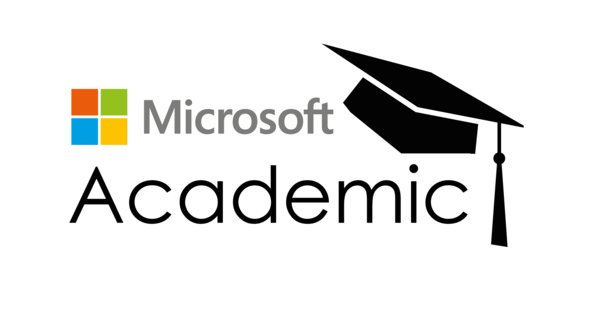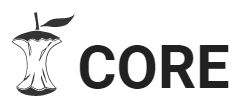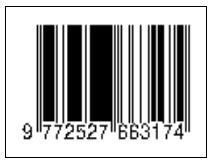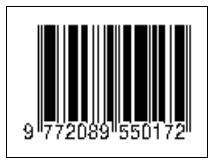Competing in the Era of Industrial Revolution 4.0 and Society 5.0
(1) Widya Mandala Catholic University Surabaya
(*) Corresponding Author
Abstract
Keywords
Full Text:
PDFReferences
Indotelco (2018). Sepuluh langkah Indonesia Menghadapi Revolusi Industri 4.0. Published 29 April 2018 at https://www.indotelko.com/kanal?c=id&it=10-langkah-indonesia-industri-4-0.
Kemenperin (2019). Making Indonesia 4.0 Bikin Industri Nasional Berdaya Saing Global di Era Digital. Published 4 April 2019 at https://www.kemenperin.go.id/artikel/19046/Making-Indonesia-4.0.
Azhar, A. (2018). Manfaat dan Tantangan Platform Digital Di Era Revolusi Industry 4.0. Published 12 April 2018 at https://digitalentrepreneur.id/revolusi-industri-4-0.
Anis, B. J., Christiananta, B. & Ellitan, L. (2018). The effect of Entrepreneurship orientation, information technology, strategic planning to competitive advantages with the business performance as intervelling variable, International Journal of Advances Research, 6(1), 230-242.
Ellitan, L. (2018). Creating Sustainability of Small and Medium Enterprises in Surabaya and Surrounding Area. International Journal of Research Culture Society, 8(1), 157-167.
Ellitan, L. & Muljani, N. (2019). The Impact of Knowledge Management, Technology Readiness and External Environment on the Extent of E-Business Adoption. International Journal of Research Culture Society, 3(11), 63-69.
Hakala, H. (2010). Strategic orientations in management literature: Three approaches to understanding the interaction between market, technology, entrepreneurial, and learning orientation. International Journal of Management Reviews, 13(2), 199-217.
Hamdanunsera, H. (2018). Industri 4.0: Pengaruh Revolusi Industri pada Kewirausahaan Demi Kemandirian Ekonomi. Jurnal Nusamba, 3(2), 2-4.
Haryanti, R. (2019). Jepang Menjelang "5.0 Society" dan Era Menikmati Hidup. Published 25 January 2019 at https://properti.kompas.com/read/2019/01/25/213000921/jepang-menjelang-5.0-society-dan-era-menikmati-hidup.
Ho, Y. W. (2014). Multiple strategic orientation and business performance: A comphrehensive investigation of high-tech firms. Digital library of Adelaide University School of Business. Published October 2014 at https://digital.library.adelaide.edu.au.
Huff, A. S., Floyd, S. W., Sherman, H. D., & Terjesen, S. (2009). Strategic Management: logic and action. Illinois: John Willey and Sons, Inc.
Natalia, I. & Ellitan, L. (2019). Srategies to Achieve Competitive Advantage in Industrial Revolution 4.0. International Journal of Research Culture Society, 3(6), 10-16.
Mayasari, D. (2019). Mengenal Society 5.0, Transformasi Kehidupan yang Dikembangkan Jepang. Published April 2019 at https://m.timesindonesia.co.id.
Muljani, N. & Ellitan, L. (2019). Developing Competitiveness in Industrial Revolution 4.0. International Journal of Trend in Research and Development, 6(5), 1-3.
Obeidat, B. Y. (2016). The effect of strategic orientation on organizational performance: The mediating role of inovation. International Journal Communications, Network and System Sciences, 9, 478-505.
Puspita, L. E., Christiananta, B., & Ellitan, L. (2020). The effect of strategic orientation, supply chain capability, innovation capability, on competitive advantage and performance of furniture retails. International Journal of Scientific & Technology Research, 9(03), 4521-4529.
Porter, M. E. (1981). The contribution of industrial organization to strategic management. The Academy of Management Review, 6(4), 609-620.
Tjandrawinata, R. R. (2016). Industri 4.0: Revolusi Industri Abad Ini dan Pengaruhnya pada Bidang Kesehatan dan Bioteknologi. MEDICINUS, 29(1), 31-39.
Tutar, H., Nart, S., & Bingol, D. (2015). The effect of strategic orientation on innovation capabilities and market performance: The case of ASEM. Procedia Social Behavioral Sciences, 207, 709-719.
Usman, S. (2019). Digitalisasi, Direktur Astra International: Seluruh Aplikasi akan Nyambung ke Depan. Published 20 September 2019 at https://www.merdeka.com/teknologi/digitalisasi-direktur-astra-international-seluruh-aplikasi-akan-nyambung-ke-depan.html.
Yunda, N. R. (2019). Dampak Revolusi Industri 4.0 dan Society 5.0 Menciptakan Kesempatan Baru bagi Indonesia. Published 26 May 2019 at https://www.kompasiana.com/nadyarahma.
DOI: https://doi.org/10.30588/jmp.v10i1.657
Article Metrics
Abstract view : 11571 timesPDF - 619 times
Refbacks
- There are currently no refbacks.
Copyright (c) 2020 Lena Ellitan

This work is licensed under a Creative Commons Attribution 4.0 International License.

Jurnal Maksipreneur: Manajemen, Koperasi, dan Entrepreneurship is licensed under a Creative Commons Attribution 4.0 International License.
Based on a work at http://ejournal.up45.ac.id/index.php/maksipreneur.
Jurnal Maksipreneur: Manajemen, Koperasi, dan Entrepreneurship has been indexed/archived by:




Journal of Maksipreneur: Management, Cooperative, and Entrepreneurship (JMP)
Organized by Management Department, Universitas Proklamasi 45, Yogyakarta, Indonesia
Published by Universitas Proklamasi 45, Yogyakarta, Indonesia
Email: [email protected] | [email protected]











